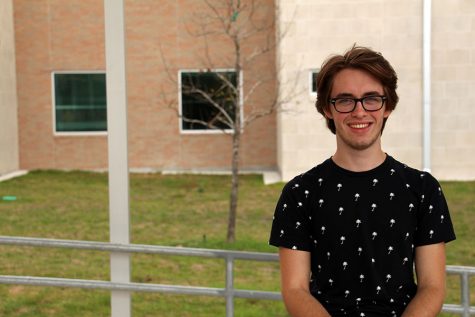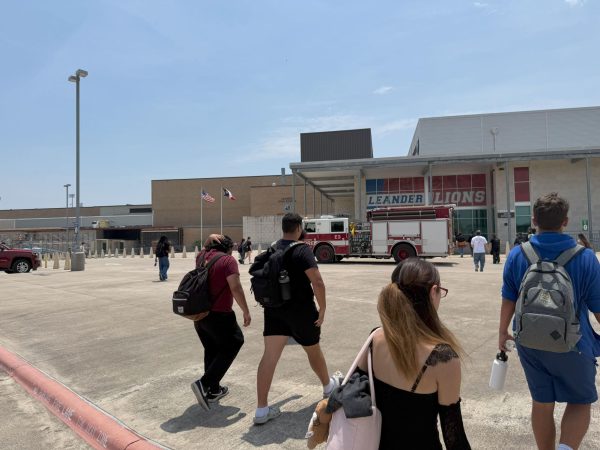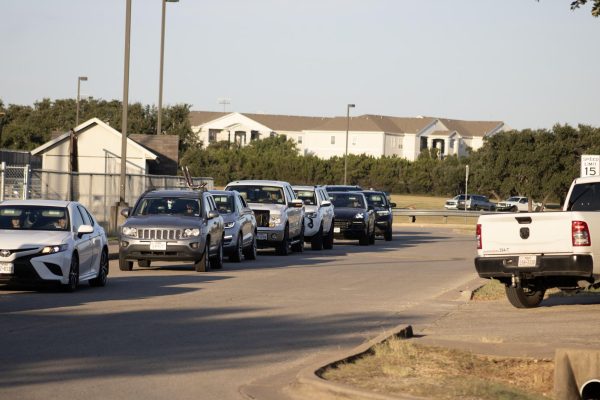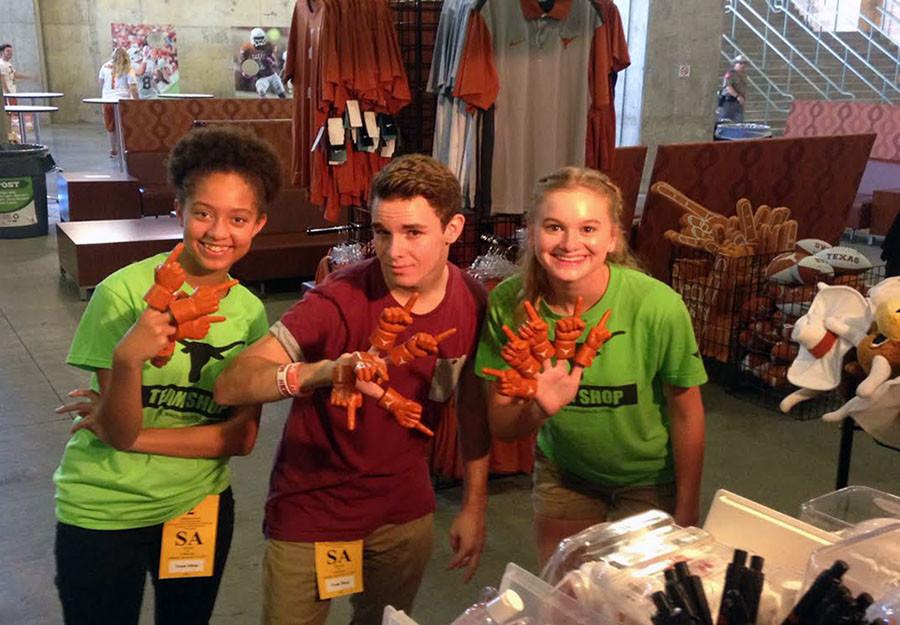Theatre troupe earns money through volunteer work with UT
In order to raise money for their shows, theatre works trailers at UT football games
Freshman Bri Branscomb and juniors Patrick Wilbanks and Miranda Pizer taking a small break from their work. Since the work day is 13 hours, all volunteers are required to take breaks.
When some people go to the University of Texas (UT) games, they plan on watching the game, sitting in the best seats and cheering. When theatre kids go, they go to work.
Theatre’s biggest fundraiser is working the UT games. It brings in about $20,000 that they say helps dramatically with putting on their shows. Every year the theatre program puts on three main stage shows. It begins with fall show, then musical and ends with one act. The most expensive of these is the musical, coming out to near $25,000-35,000. Fall show is roughly $10,000 and one act can be anywhere from $5000-10,000. They have to pay the royalty fees for their scripts, costume rental fees, space in the PAC and many other things.
“We sell t-shirts, hats and other UT merchandise,” theatre troupe president Emilee Earthman said. “Our students go out there for 12-14 hours a day on Saturdays when we have home UT games. They uphold our Leander High School theatre standard of responsibility, politeness, decorum and professionalism.”
They get paid $100 per student that work outside and $80 per student that work inside. The students are usually put three to a trailer. One to watch the merchandise and two to work the cash registers. The trailers are stationed all around the stadium at the larger entrances. Then there are two auction booths inside the stadium at which two students are placed. The process requires planning, which is done by Earthman herself.
“As the president of the troupe I coordinate,” Earthman said. “I put people with people they would enjoy spending 12 hours with to avoid tension in the department. I have to organize parent drivers, where to meet, when to meet, and how long the games will go. I correspond with Eric, the leader of fanatics, quite a bit asking him questions about what we need to do. It is a great deal of work, but it’s one of my presidential duties.”
The students themselves do not get paid directly, but it does lower the cost of their fees to be in the productions and for their bus rides when traveling. All of the students in the advanced theatre class are required to work a minimum of four games.
“The UT fundraiser is a huge benefit to the theatre department,” junior Matthew Kennedy said. “It gives us the sufficient amount of money we need to put on all the shows throughout the year. It’s just a wonderful experience in general that allows us to explore outside our boundaries, get involved with the community and getting our name out there.”

My name is Austin Graham and this is my third year to be on the staff of The Roar and my second year as the Assistant Editor. I love dogs more than anything...



![Freshman Carissa Arellano unfolds a striped tablecloth, hoping to use it as decoration in the annual Haunted Hallway, constructed by the LHS cheerleaders. "[My favorite part] is the characters and the amount of thought that has gone into our costumes," said Arellano.](https://lhsroar.com/wp-content/uploads/2024/10/haunted_hallwayjpg-600x445.jpg)

